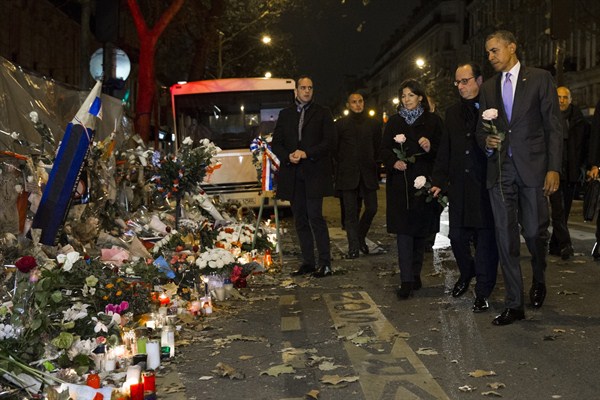A somber weariness has settled in across Western democracies in the aftermath of the Paris attacks. Defeating and destroying the so-called Islamic State with military force has won broader support. But most realize that the challenge will require a complex set of policy responses, far beyond aerial bombardments to liberate territory controlled by the group in Syria and Iraq. Although there is not yet any consensus about what such a long-term strategy should look like, some new ideas are emerging.
To begin with, the old debate over how to distinguish between the threat posed by al-Qaida and the newer one from the Islamic State has been overtaken by the events in Paris earlier this month. Only a few months ago, some U.S. officials were fretting that they had misallocated resources to al-Qaida, perceiving it as the more established, lethal danger, at a time when it still seemed the Islamic State was more focused on holding Arab territory than confronting the West. The concern was that the U.S. and its European allies had developed an intelligence and military infrastructure that were not a perfect match for the larger danger that the Islamic State has become, first in the Arab heartlands and now in Western capitals.
In his new book, “The New Threat from Islamic Militancy,” Jason Burke provides useful history and context and concludes that the issue is now moot. The two organizations have much in common, have learned from each other, and draw on some of the same demographics for recruitment. But they are also competitive and have some genuine doctrinal disagreements, for example over the creation of an Islamic caliphate, which al-Qaida sees as a long-term goal and the Islamic State is trying to achieve now. In any case, it is clear that the Islamic State is the more modern and sophisticated organization. And while al-Qaida may keep working to mobilize its followers against any Western presence in Muslim lands, the momentum in the rivalry between the two is now with the Islamic State. Given the group’s fearlessness and ambition, it represents a greater challenge for the West.

